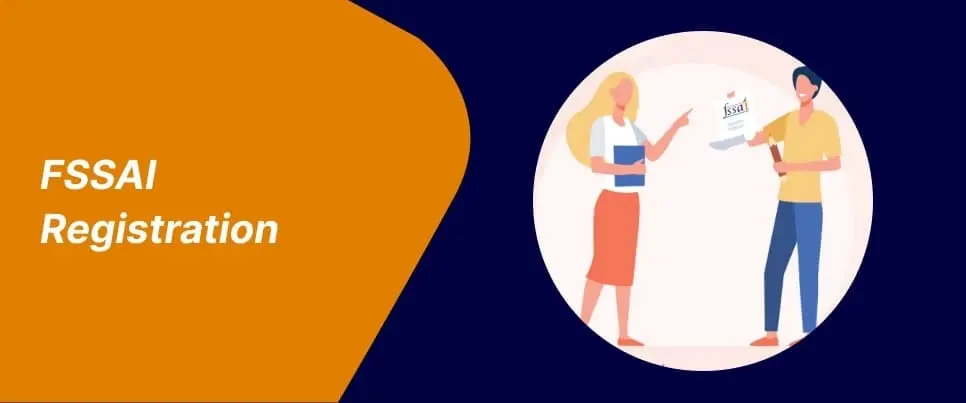
FSSAI, or the Food Safety and Standards Authority of India, is the vigilant guardian of food safety in the country. Established under the Food Safety and Standards Act, 2006, this autonomous body operates under the aegis of the Ministry of Health and Family Welfare, Government of India. Its primary objective is to oversee and govern the entire food license registration landscape in India.
FSSAI registration is more than just a legal requirement; it's a commitment to food safety and quality. Let's dive into why it's vital for every food business operator (FBO) and explore its key aspects.
Ensuring Food Product Quality
Quality is non-negotiable when it comes to food products. Food License and registration mandates rigorous quality checks, curbing food adulteration and the sale of substandard items. This ensures that consumers receive safe and high-quality food products.
Licensing for Food Business Operators
All FBOs, including those involved in manufacturing, preparation, selling, transportation, distribution, and storage of food articles/products, are mandatorily required to obtain FSSAI registration online. This licensing ensures that each business adheres to the prescribed standards and regulations.
Rules and Regulations
FSSAI lays down comprehensive rules and regulations governing food businesses in India. These guidelines cover everything from labeling requirements to permissible additives, safeguarding consumers interests and health.
Food business operators in the following categories are mandated to obtain an FSSAI Registration or License:
The type of FSSAI Registration or License required by each type of food business operator depends on their eligibility criteria, as provided on the FSSAI website.
FSSAI registration comes in three distinct flavors, each catering to different business categories. Let's delve into the specifics of each:
1. FSSAI Basic Registration
If your food business has an annual turnover of less than Rs. 12 lakh, you fall into the category of FSSAI Basic Registration. This is the first step for small businesses and startups. The application form you need to complete is Form A.
2. FSSAI State License
For businesses with a turnover exceeding Rs. 12 lakh but less than Rs. 20 crore, the FSSAI State License is the way to go. This license is for mid-sized food businesses. You'll need to fill out Form B to apply for it.
3. FSSAI Central License
Now, if your food business boasts a turnover of more than Rs. 20 crore annually, you're in the big leagues, and the FSSAI Central License is your ticket. Form B is also the document you'll be working with for this application.
Obtaining FSSAI registration is a crucial step for food business operators (FBOs) to ensure the safety and quality of food products.
To achieve FSSAI registration, your business must meet specific criteria, which vary based on the type of operation. Let's break down the eligibility requirements for different categories of small-scale food businesses:
|
Type of Business |
Eigibility Criteria |
|
Food production (other than milk and meat) |
Upto 100 kg/ltr per day |
|
Procurement, handling, and collection of milk |
Upto 500 ltr per day |
|
Slaughtering |
2 large animals or 10 small animals or 50 poultry birds per day or less |
|
Transportation |
Vehicle |
|
Vending Machine |
Up to 12 vending machines in only one state/UT |
In the complex world of food business regulations, obtaining the necessary licenses and registrations from the Food Safety and Standards Authority of India (FSSAI) is a critical step. Whether you're a food manufacturer, distributor, or retailer, compliance with FSSAI regulations is non-negotiable. Now we’ll explore the documents required to obtain FSSAI basic registration, FSSAI state license, and FSSAI central license.
Now, let's look into the specific requirements for obtaining the FSSAI state license and FSSAI central license:
Required Documents for FSSAI State License
Required documents for FSSAI Central License
Starting with the most accessible option, the FSSAI Basic Registration comes at a budget-friendly fee of just Rs. 100. This is an ideal choice for small-scale food businesses, home-based entrepreneurs, or those who are just starting.
If your food business has a larger scale and operates across a state, the FSSAI State License is the way to go. The fee for this license falls in the range of Rs. 2,000 to Rs. 5,000. The specific cost depends on the nature and size of your business operations.
For food businesses that operate on a national or international level, the FSSAI Central License is the premium choice. The cost of this license is Rs. 7,500, making it a more significant investment. However, it comes with a broader scope and increased opportunities.
Now that you're familiar with the FSSAI License Cost, let's talk about how to obtain these licenses easily. 'My Startup Solution' is your go-to expert partner for FSSAI license assistance. Our team has extensive experience and expertise in helping businesses like yours navigate the FSSAI registration process.
We understand the complexities of FSSAI regulations and can guide you through the entire process. With our assistance, you can obtain the necessary licenses efficiently, saving time and effort.
To track your FSSAI registration status, follow these steps:
|
Stage |
Description |
|
Application Submission |
After submitting your application, you will receive SMS/email alerts at various stages of processing. |
|
Application Reverted |
If your application is reverted, the authorities require modification or clarification. Respond within 30 days. |
|
Registration Certificate Issued |
Once approved, you can download your registration certificate by logging into the FoSCoS website. |
The license is granted for a duration of 1 to 5 years, requiring businesses to request license renewal at least 30 days before the current license expires.
When it comes to FSSAI registration, you want a trusted partner that can simplify the process and ensure your compliance with food safety regulations. 'My Startup Solution' is precisely your dedicated partner in this journey. Here are the top reasons why you should choose us:
With years of experience in the field, 'My Startup Solution' boasts an impressive track record of helping startups and businesses obtain FSSAI registration hassle-free. Our team of experts understands the nuances of the registration process, making it a seamless experience for you.
We prioritize trust and reliability above all else. Our commitment to ensuring your FSSAI registration is transparent and dependable is unwavering. We take care of all the intricate details, leaving you with peace of mind and confidence in your startup's compliance.
At 'My Startup Solution,' we understand that each business is unique. We tailor our services to your specific needs, providing you with a personalized experience. This ensures that you get the exact support required for your FSSAI registration.
The paperwork and documentation process can be overwhelming. 'My Startup Solution' simplifies it for you, ensuring you have all the necessary documents in order. We streamline the paperwork, so you don't have to worry about a thing.
Our customer support team is here to address your concerns and questions. We offer continuous support throughout the registration process and beyond, ensuring that you always have a trusted partner to turn to.
FSSAI registration is crucial for FBOs because it ensures food safety and quality by mandating rigorous quality checks, adhering to prescribed standards and regulations, and covering various aspects of food businesses.
FBOs in categories like retailers, food stalls, dairy units, vegetable oil processing units, meat processing units, food manufacturers, hotels, restaurants, caterers, and more need FSSAI registration to maintain food safety.
There are three types of FSSAI registration: Basic Registration, State License, and Central License, each catering to different business categories based on their annual turnover.
FBOs can obtain FSSAI registration online by visiting the FoSCoS portal, filling out the appropriate form, and submitting necessary documents. The application is reviewed, and if approved, a registration certificate is granted for display at the business premises.






